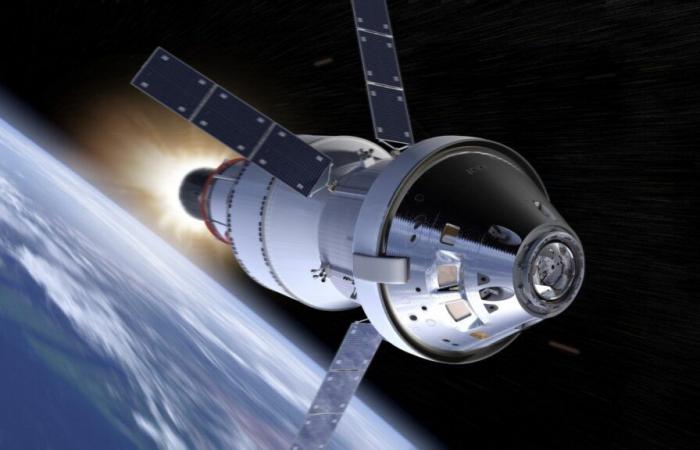The Artemis II mission, aimed at launching four astronauts into orbit around the Moon, is a titanic project. To say, NASA's Space Launch System (SLS), the launcher for the lunar rocket, has been in development since 2011. Unfortunately, everything does not go as planned, and difficulties accumulate around this essential component. Specialists even assume its potential cancellation.
Launcher for NASA's next moon rocket in trouble
According to Eric Berger, journalist specializing in space from Ars Technicathere is “at least a 50% chance” that the SLS will be canceled by NASA in view of the difficulties encountered.
“No Block 1B. No Block 2,” he adds, referring to the modules used for the unmanned test flight of Artemis I in 2022 and the design of more powerful thrusters intended to carry a much higher payload for the final mission.
Eric Berger thus emphasizes that NASA has still not found a viable solution for Artemis II. Futurism points out in passing that the journalist is considered very reliable, which could suggest that “the space agency could well hesitate to continue investing billions of dollars in the non-reusable rocket”.
What impact on the Artemis II mission?
As a reminder, the SLS is not its first budget overrun or design delay. Lori Garver, former deputy administrator of NASA, had also clarified to Futurism in 2022 that the project was “not viable”. We are still talking about a budget overrun by more than $6 billion and a delay of more than half a decade.
Michael Griffin, former NASA administrator, on the Space and Aeronautics Subcommittee of the House of Representatives had also pointed out the complexity of the project during a hearing in January 2024 on the Artemis program of the space agency.
“In my opinion, the Artemis program is excessively complex, unrealistically expensive, compromises crew safety, poses a very high risk of mission termination, and is highly unlikely to be completed on time. , even if he succeeds,” he explained.
According to Eric Berger, plan B in the face of abandoning the SLS would initially be to launch the Orion capsule on a rocket, like SpaceX's Falcon Heavy, then to “dock with a Centaur V (launched separately) and propel it around the Moon”.
As a reminder, the launch of astronauts via Artemis II is initially planned for September 2025, and aims to send them into orbit around the Moon. To get a foothold again on the Earth's natural satellite, we will have to wait for Artemis III, at the end of 2026, which this time would use the reusable Starship launcher.






